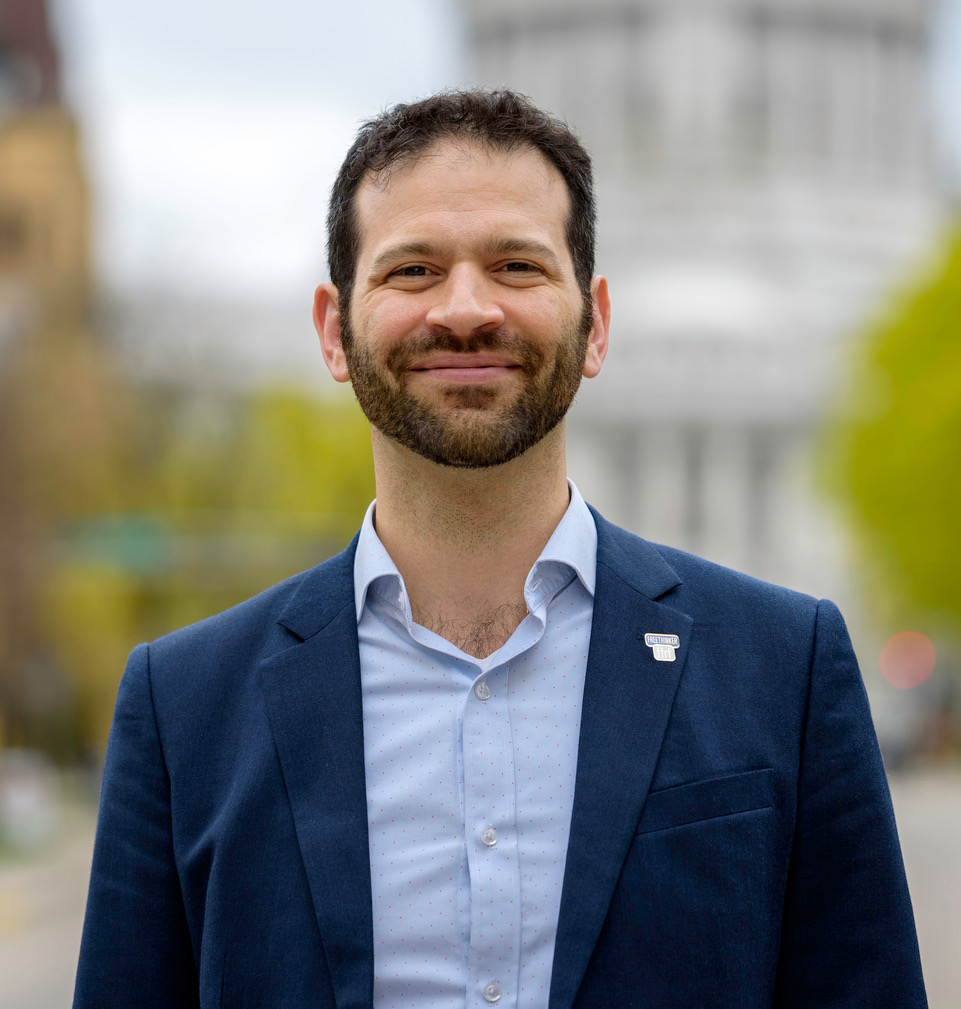
In this edition of FFRF’s Mark on the Hill, let’s discuss the impact of the 2020 elections and how we plan to build the movement together as Christian Nationalism regroups.
It is clear that following the 2020 elections, we’re in a far better place than we were before. The Christian Nationalist in the White House was not re-elected while all members of the Congressional Freethought Caucus were. We’re awaiting the outcome of two Georgia Senate races in January to know whether the balance of power in the Senate will change. The House results may make for a relatively cautious chamber that could diminish the legislative opportunities available to us. Yet the Biden administration opens up lots of opportunities to undo damage and to strengthen the separation of state and church, especially in regulations, executive orders and guidances.
Here’s the plan:
Engaging the new administration and undoing harm from the outgoing one
Тhe Trump administration enacted over three dozen rules, regulations, guidances and commissions designed to take away your civil and secular rights. We will be working to encourage the new administration to reverse and remove harmful regulations and shut down some of Trump’s extrajudicial commissions: the so-called Religious Liberty Task Force at the Department of Justice, the Conscience and Religious Freedom Division at the Department of Health and Human Services, and the Commission on Unalienable Rights at the Department of State.
Judicial nominations
The good news is that the pain of court packing from the Trump administration will stop after the presidential inauguration. We don’t know how long it will take to rebalance and correct the courts that have been packed with Christian Nationalist judges.
We’re working with our friends in the Leadership Conference for Civil and Human Rights to help advocate for and nominate high-quality judges who support the separation of state and church. (Keep an eye out for FFRF’s upcoming report on Trump judges.)
Key pieces of legislation
In the 116th Congress, FFRF worked hard to add co-sponsors to the Do No Harm Act. We also worked to advance the Equality Act, which adds LGBTQ as a protected class to the Civil Rights Acts and prohibits discrimination based on sex, sexual orientation and gender identity, and the No BAN Act, which eliminates the Muslim ban, limits presidential authority to suspend or restrict immigration and prohibits religious discrimination in immigration-related decisions. The Equality Act and the No Ban Act did pass out of the House in the 116th Congress.
In addition, the Scientific Integrity Act, which prevents political appointees from meddling in publicly funded scientific research, passed the House as part of the HEROES act (COVID Relief Bill). The STOP FGM Act of 2020, which prohibits Female Genital Mutilation (FGM) on minors, and the Blasphemy Resolution, which calls on the president and the State Department to prioritize the global repeal of blasphemy laws, have strong bipartisan support in Congress and could make it to the president’s desk.
We’re looking forward to making gains with these pieces of legislation. However, the entire legislative process starts again. We will have to work with our allies to build co-sponsor lists and get all of these bills moving in their committees, in the legislative chambers and onto the president’s desk.
Expanding the Congressional Freethought Caucus
The Congressional Freethought Caucus, first established with three members in October 2018, has now expanded to 14 with the recent addition of Rep. Don Beyer, D-Va. We’ll be working diligently to encourage more members of Congress to join the caucus now that the election is over. Look for more opportunities to engage your member of Congress and encourage them to join the caucus.
Building the movement as Christian Nationalism regroups
In 2021, we’re going to be offering some new advocacy tools to make your civic engagement more impactful. We are planning to better connect you to lawmakers to make your secular voices heard. We’ll be providing you with the tools to evaluate legislators with a new dynamic legislative scorecard that rates members of Congress on votes and sponsorship or co-sponsorship of bills, and it will also consider their social media messaging, press releases and media mentions on FFRF issues, as well as whether they’ve joined the Congressional Freethought Caucus. You’ll be able to identify who are the true champions of the First Amendment and who we need to better engage.
Plus, FFRF has been working with our secular allies to develop a common agenda for Congress and the new administration to implement. We’re dedicated to undoing much of the harm inflicted on this nation in the last four years and to working to safeguard the secular future. The legislative agenda focuses on judicial nominations, engaging the new administration and undoing harm from the Trump administration, and advancing key pieces of legislation.
Final thoughts
We are going to need a lot of help to make sure our collective voice is heard during this legislative session, and to keep Christian Nationalism on the back foot. While the Freedom From Religion Foundation is the nation’s largest membership organization of nonbelievers, with about 33,000 members at this moment, a larger base would mean more power, more engagement and visibility with Congress and the administration, and more holding legislators accountable. The best thing you can do today is to renew your FFRF membership and tell friends about FFRF, or better yet, sign them up for a gift membership.
Yes, we need your dues, but more than that, we need members. We need numbers. Membership equals power. Politicians listen to their constituents. They might not do exactly what you want, but when citizens speak up, politicians prioritize. Members in the upcoming Congress and in statehouses across the country are trying to figure out what must be prioritized and what can wait. Let’s make some “good trouble” together and get moving.
All the best,
Mark Dann
Director of Governmental Affairs
Freedom From Religion Foundation, Inc.

